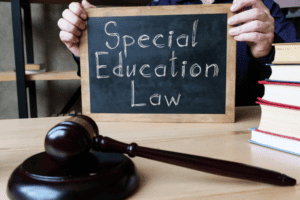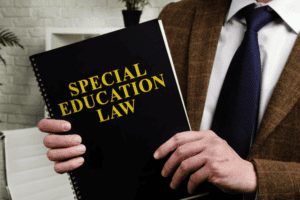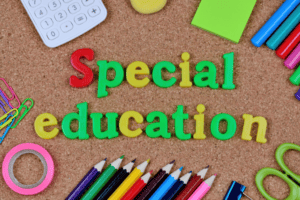Do you have a child with special needs? If so, you may be wondering about your rights under special education law in Florida. This blog post will answer some of the most commonly asked questions about special education law in Florida. Lacey Lyons Rezanka Attorneys at Law will cover eligibility requirements, Individualized Education Programs (IEPs), and discipline procedures. If you have any additional questions after reading this post, please don’t hesitate to contact us for help!
What is a physical or mental impairment that substantially limits a major life activity?
The Section 504 regulatory provision at 34 C.F.R. 104.3(j)(2)(i) defines a physical or mental impairment as any physiological disorder or condition, cosmetic disfigurement, or anatomical loss affecting one or more of the following body systems: neurological; musculoskeletal; special sense organs; respiratory, including speech organs; cardiovascular; reproductive; digestive; genito-urinary; hemic and lymphatic; skin; and endocrine; or any mental or psychological disorder, such as mental retardation, organic brain syndrome, emotional or mental illness, and specific learning disabilities. Because it is difficult to determine all possible diseases and conditions that may be included, the regulatory provision does not provide an exhaustive list of physical or mental impairments.
Major Life Activities
Major life activities, as defined in the Section 504 regulations at 34 C.F.R. 104.3(j)(2)(ii), include functions such as caring for one’s self, performing manual tasks, walking, seeing, hearing, speaking, breathing, learning, and working. This list is not exhaustive. Other functions can be major life activities for purposes of Section 504. In the Amendments Act (see FAQ 1), Congress provided additional examples of general activities that are major life activities, including eating, sleeping, standing, lifting, bending, reading, concentrating, thinking, and communicating. Congress also provided a non-exhaustive list of “major bodily functions” that are major life activities, such as the functions of the immune system, normal cell growth, digestive, bowel, bladder, neurological, brain, respiratory, circulatory, endocrine, and reproductive functions.
What support can schools provide for special education students?
Schools differentiate their instruction to support students with disabilities according to each student’s individual needs and goals that are written in their Individual Educational Plan (IEP). Teachers can support students with diverse learning needs through various effective instructional approaches, such as universal design for learning, differentiating instruction, providing accommodations and/or modifications, and collaborative teaching approaches. Important decisions concerning your child’s education are always made in conjunction with family members and other professionals during IEP team meetings.
What are the contents of an Individual Education Plan (IEP)?
The requirements for an Individualized Education Program (IEP) are different for each student. The school creates this document to ensure that every child with a disability receives the appropriate education, support, and services they need – as written in the IEP.
The IEP must contain these pieces of information:
- Present levels of educational performance
- Goals
- Special education and related services
The IEP team must decide how to enact the plan once it is written. The school district is legally bound to give a free and appropriate education (FAPE) in the least restrictive environment (LRE). Consequently, the IEP team will contemplate the way — wherever possible for both — that your child can be educated alongside kids who don’t have disabilities.
Special education is not a specific location but a group of services designed to help your child reach their goals. For most children, the preferred setting will be the general education classroom, but there are many options available depending on the needs of the child. In addition to the topics mentioned above, the following are also part of the IEP:
- Your child’s level of involvement in activities with other nondisabled children and school programs.
- The services’ starting date, frequency, duration, and where they will occur.
- The necessary transition services (age 16 or the first IEP that will be in effect when the child turns 16).
Your child’s team will consider and address particular factors in the IEP, depending on your child’s needs:
- If a child’s behavior is disruptive to their learning or the instruction of others, the IEP will have support and strategies to manage that.
- The language acquisition needs specified in the student’s IEP Communication Plan.
- The communication plan outlines the necessary types and frequencies of communication.
- Specialized equipment or services that are necessary to receive a free appropriate education (FAPE).
- Necessary accommodations for students with disabilities in the general education classroom.
What do I do if my child’s school doesn’t offer the kind of support my child needs?
Exchanging information between schools and guardians is crucial to ensuring inclusion works for every kid. Families should reach out to their child’s teacher(s), guidance counselor, or school administrator if they have any education concerns. All school districts have procedures in place to assist families with resolving disputes. Please get in touch with the district’s ESE office if you are unsatisfied with the response. Here are some strategies for communicating important information about your child:
- It is vital that you know your child and that you understand how to share information with them effectively.
- You should be aware of your child’s rights under the law.
- Research the staff working at your child’s school and understand their roles in relation to your child.
- Communicating effectively and working positively with all school staff is essential.
- Your voice and your child are both significant!
Other questions or concerns? Contact Lacey Lyons Rezanka Attorneys at Law
We formed Lacey Lyons Rezanka with a clear objective: to establish long-term and mutually beneficial relationships through a proven client-centered methodology. We believe in three fundamental principles: trust, excellence, and professional ethics. Our attorneys collectively have many years of legal experience and are knowledgeable in various areas of law. Recognizing the legal field’s flexibility, we feel that staying updated with these changes is critical in meeting our client’s legal demands.






